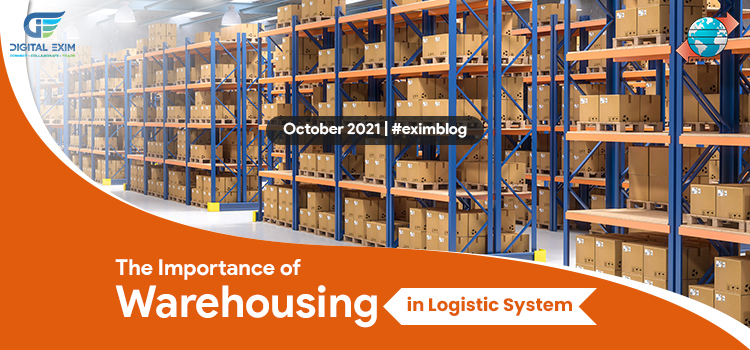Every trader understands the importance of a warehouse. Warehouse services play a prime role in the storage and exchange of goods. It is a requirement for most businesses that export, import, manufacture, and transport goods. Before moving to the importance of warehouses, first, let’s know what international trade is. International trade is the exchange of products and services. A combination of export and imports makes international trade. Import-export business training ensures you know every detail of the warehouse in the logistic system. Warehouses give you better control over inventory and make sure that customers receive products on time. It provides storage for the finished goods and also includes packing and shipping of the order. Warehousing services can provide economic and service benefits to both businesses and customers. It fills the gap between the time of production and the time of consumption or delivery in the market. Warehouse has an impact on everything from obtaining raw materials to managing inventory to sending orders.
Now let’s move towards why warehouse is important-
Importance of Warehousing in Logistic System
1 Visibility of Stock-
Warehouse strategies to manage their stock and provide accurate insight of the inventory. Managing and keeping stock is a big task and needs a designated place for it.
2 Preserve Goods-
Warehouses are needed as production is now conducted on a large scale. There is a time gap between production and consumption of goods so it needs to be preserved properly. It keeps the goods intact.
3 Price Stability-
Due to warehouse facilities, it is possible to bring a proper balance between demand and supply of goods. It makes the balance between the demand and supply that brings price stability.
4 Central location of Goods-
A warehouse provides a central location for receiving, storing, and distributing products. So, it reduces the transportation cost of a business. It is the responsibility of warehouse personnel to identify, sort, and dispatch goods as soon as the shipment arrives.
5 Easy Packing-
A warehouse has all the equipment needed to store, move, package, and process orders from customers. It has everything in one place like loading docks, and packing materials, which will result in money and time savings.
6 Controlling Risk –
A perishable commodities warehouse is needed to provide safe storage of the products like eggs, medicines, fruits, etc. Depending upon the product you can have refrigerators or temperature control storage for the products.
7 Quality control-
The details and configuration of any product stored in the warehouse should be recorded perfectly so that the correct product or goods can be delivered to the right place at the right time.
8 Price Stabilization-
Demand and supply of goods varies from time to time depending on several factors. You can store your product in a warehouse and wait for when the demand goes high. This protects the owner from loss.
9 Effective and Efficient Distribution-
It allows efficient distribution to your customers. The customers will receive their orders correctly and within the time.
10 Goods Security-
A warehouse also protects goods. Warehouses have security personnel and security technology like CCTV to make sure goods are safe and no one enters without permission.
There are different types of Warehousing in Logistics-
- Public Warehouse
- Private Warehouse
- Bonded warehouse
- Smart Warehouse
- Consolidated Warehouse
- Distribution Warehouse
Warehouse service is the most important component of the logistic system. Efficient warehouse management enhances the growth and expansion of logistics and business. Export-import consultancy services assist you in understanding every term of export and growing your business. For more information visit our site!







